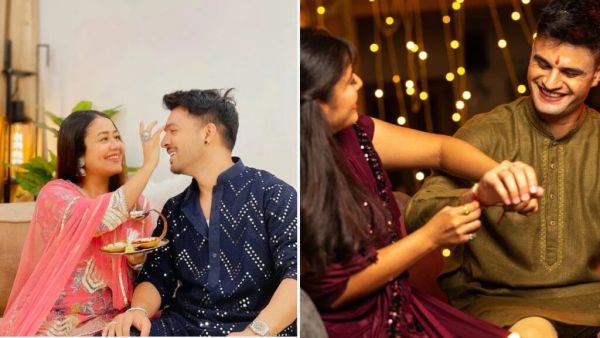
New Delhi: Bhai Dooj and Raksha Bandhan are two of India’s most cherished festivals that celebrate the sacred bond between brothers and sisters. Though they share a common thread of love and protection, both hold their own significance, history, and customs. Bhai Dooj 2025, which comes right after Diwali, offers a chance for brothers and sisters to reconnect, express gratitude, and pray for each other’s happiness.
Yet, Bhai Dooj is often confused with Raksha Bandhan, celebrated earlier in the year. Understanding the difference between these two festivals helps us appreciate the depth of emotion and tradition they represent in Indian culture.
Raksha Bandhan is observed on the full moon day (purnima) of the Shravan month (July-August). It marks the symbolic bond of protection, where a sister ties a rakhi on her brother’s wrist, praying for his well-being and long life.
Bhai Dooj, on the other hand, falls on the second day (Dwitiya Tithi) of the Shukla Paksha in Kartik month (October-November), just two days after Diwali.
On Raksha Bandhan, the sister performs a small prayer, ties the rakhi, and applies a tilak on her brother’s forehead. The brother, in return, promises to protect her from harm and offers gifts as a token of love.
On Bhai Dooj, the sister welcomes her brother home, applies kumkum tilak on his forehead, performs aarti, and serves him a home-cooked meal, especially prepared with love. She prays for his long life, health, and success, while the brother blesses her and offers gifts in return, expressing affection and gratitude.
Different regions in India observe these festivals with unique customs. In North India, Bhai Dooj is also called Yama Dwitiya, as legend says that on this day, Yamraj visited his sister Yamuna. Raksha Bandhan, meanwhile, carries mythological roots in stories of Draupadi and Krishna, Indra and Indrani, and even Queen Karnavati and Emperor Humayun – all symbolising the sacred bond of trust between siblings and protectors.
The sister’s role in both festivals is central but distinct. On Raksha Bandhan, she ties the rakhi as a symbolic thread of protection. On Bhai Dooj, she showers blessings and affection. Her act of feeding her brother signifies care, abundance, and spiritual nourishment.
At heart, both Raksha Bandhan and Bhai Dooj remind us that family ties are sacred. They invite us to pause and express gratitude to the people who support and protect us through life. In today’s world, where time often keeps loved ones far, these festivals rekindle that warmth.
Written by: Tanya Singh, Astropatri.com. For any feedback, please contact hello@astropatri.com